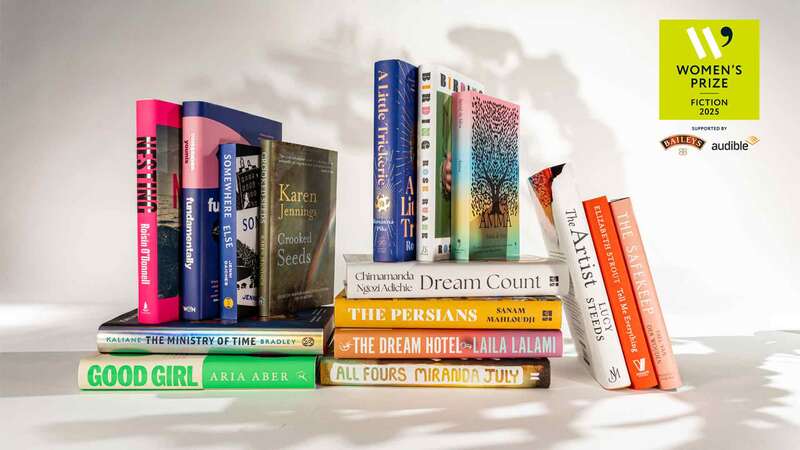You are viewing your 1 free article this month. Login to read more articles.
Feminist dystopias a 'key fiction trend for 2018'
Editors are tipping "lush" historical fiction and literary dystopias with a feminist flavour to take the charts by storm this year, with the success of titles such as Margaret Atwood's The Handmaid's Tale (Vintage) and Naomi Alderman's The Power (Viking) demonstrating an increasing appetite for books with strong central female characters.
Noting the groundswell of interest in female-led stories triggered by the #MeToo movement, trade figures are predicting that readers will be hungry for literature that reacts to our current times, or else that offers reassurance and the chance to escape into fully realised past worlds.
According to Anne Meadows, commissioning editor at Granta, the trend for literary dystopias will continue into 2018, with Sophie Mackintosh's The Water Cure (Hamish Hamilton, May) and Yoko Tawada's The Last Children of Tokyo (Portobello, June), following on from Megan Hunter's 2017 hit The End We Start From (Picador) by intimately examining near-futures that echo "our own disturbed present".
Meadows said: "Dystopias are perennially popular, but this new crop has feminist flavour and a concern for what women's bodies mean in these ravaged worlds. It strikes me that there's a generation of young, female literary writers telling new stories about the female body and our place in society, for example Jessie Greengrass, Emma Glass, Lesie Jamison. Certainly at present, and in the wake of #MeToo, it's women's voices I want to hear."
Adam Freudenheim, publisher and m.d. of Pushkin Press, and Helen Garnons-Williams, publishing director of Fourth Estate, both concurred, saying that the success of The Handmaid's Tale and The Power last year means there will be more successful feminist fiction for all ages this year. Meanwhile, Emma Beswetherick, associate publisher at Little, Brown Book Group, said that #MeToo has put equal rights at the forefront of conversation and that this will manifest itself in literature with more stories featuring powerful women rather than passive ones, including in genres such as domestic suspense.
She said: "Domestic suspense has seen a massive boom in recent years, but I expect we'll start seeing the pendulum swing the other way, moving women out of positions of domestic abuse and into the driving seat of their own stories. This may mean a move back towards more traditional police procedurals, with females taking the lead in the form of DIs or forensic psychologists, or it could mean an increase in crime and thrillers that explore a moral compass, such as 2017's Anatomy of a Scandal by Sarah Vaughan (S&S) or Lisa Ballantyne's new novel Little Liar (Little, Brown, August)."
Joel Richardson, crime and thriller editor at Michael Joseph, said that while psychological thrillers are "here to stay", it looks as though there will be more balance in the market this year, with books like The Dry, Eleanor Oliphant and The Essex Serpent inspiring their own trends.
Alongside feminist dystopias, publishers predicted the continuing popularity of historical fiction, with new titles including The Mermaid and Mrs Hancock by Imogen Hermes Gowar (Harvill Secker, January) taking up the mantle from recent successes The Miniaturist (Picador) and The Essex Serpent (Serpent's Tail).
Louisa Joyner, editorial director at Faber, said that appetite for historical fiction is the result of readers seeking reassurance and relief from the current political and social climate.
"It's really fascinating to see major political concerns sublimated in fiction. Now that the stakes couldn't be higher, I think readers are looking for comfort in fiction", said Joyner. "Stories will still be about jeopardy, but historical fiction like AJ Pearce's Dear Mrs Bird (Picador, April) or the Madonna of the Mountains by Elise Valmorbida (Faber, March), will be reassuring to readers who can read about people going through difficult times and getting through them. This kind of literature will help people cope with our current lives; contemporary life is hard enough, people don't really want to read about it."
Bonnier Zaffre editorial Director Sophie Orme added: "Readers want to escape present realities and will seek to escape into alternative worlds and possibilities."
Similarly, Susie Dooré, publishing director of the Borough Press, said that this year readers will be after "lush, intelligent" historical novels, with a "hint of the supernatural", citing Laura Purcell’s The Silent Companions (Bloomsbury), and Bridget Collins’ The Binding (Borough Press, Jan 2019).
Picador publisher Paul Baggaley said the successes of big titles cited by publishers - The Mermaid and Mrs Hancock, The Essex Serpent, and The Miniaturist, among others - show that the biggest trend in publishing at the moment is the increasing focus on a very small number of "powerful, highly marketed debut novels", which also offer literary qualities and could be shortlisted for many prizes.
Conversely, MJ's Richardson said it was heartening to see "well-earned breakout books" coming not just from debut authors but also from seasoned writers like Erin Kelly and Sarah Pinborough. "I'm sure publishers will be paying even closer attention to their own lists to identify existing authors ready to move to the next level", he said.














